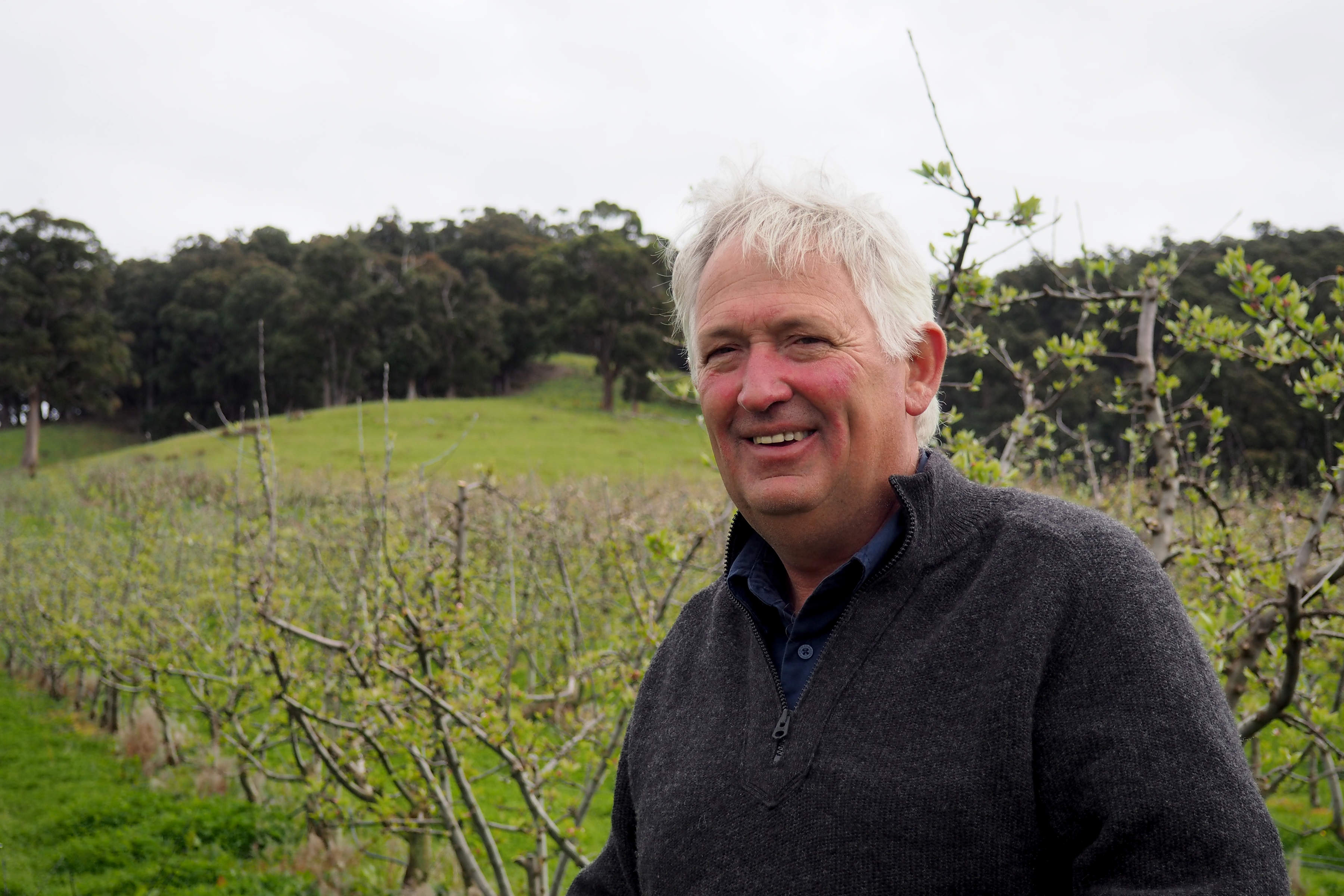“We produced about 500 bins of Tasmanian Tiger Fuji last season, and around 50% of that was exported,” Andrew said. “The Tiger Fujis are a specialty product with their own niche market. This current season we have exported into Hong Kong, as well as a small consignment to Singapore by air freight.”
Andrew developed the Tiger Fuji and owns the trademark, making it his very own managed variety. It was a rare opportunity to nurture the ideal apple for a specific market using grower knowledge and consumer insights.
“We had the benefit of being able to develop the Tiger Fuji ourselves, guided by our experiences in the Tasmanian fruit export period from the 70s to the 90s, including our exports of Red Delicious into India,” Andrew said. “We understood what our customers needed, so we knew what we wanted from an apple. It’s a cool climate apple that grows well here and it has an ability to develop honeycore at an early stage, which is in high demand in Asian countries.”
While the Tasmanian Tiger Fuji is an important apple for Scott Brothers, Andrew has a mix of other managed varieties, including Kanzi® and Envy™, and the majority of his crop is open commodity varieties. For Andrew, the orchard make-up is an ongoing project to find the ideal balance. He says his ratio is not necessarily a guide for other growers.
“It works for us to have a niche export variety as well as other varieties we can supply along the eastern seaboard of Australia,” he said. “It won’t work for everyone, as scales and businesses change, hence all options are open.
“We’re looking at restructuring the orchard, trying with marginal blocks to plant better and more profitable varieties. These could potentially be managed varieties — if the right ones are available.”
Andrew acknowledges the pros and cons of managed varieties.
“You may lose some independence with managed varieties, but by the same token there’s more security in being involved in a program where the sales and volumes are being managed,” Andrew said. “It also gives you the chance to work together with other people and groups instead of doing it on your own, which is a positive.”
The international market has a place for premium, niche and high-quality varieties, but it takes a new way of thinking for growers. Andrew believes that finding viable export markets out of Australia is essential to the future of the industry, and should be embraced.
“If growers are choosing a variety with a plan to export, they should talk to an exporter and make this a joint venture between growers, packers and marketers,” Andrew said. “It’s easier to go through established marketing groups than to do it yourself, and it’s important to understand the specific market, and how transportation affects the condition of the fruit. For example, if it has to be on a sea voyage for four weeks before it reaches the destination.”
At present there is only one other grower of the Tasmanian Tiger Fuji apple, but Andrew is optimistic about the potential of this variety — he just has to make sure it’s perfect.
“We’re trying to get the recipe right first,” he said. “We’re almost ready to grow the production base.”
